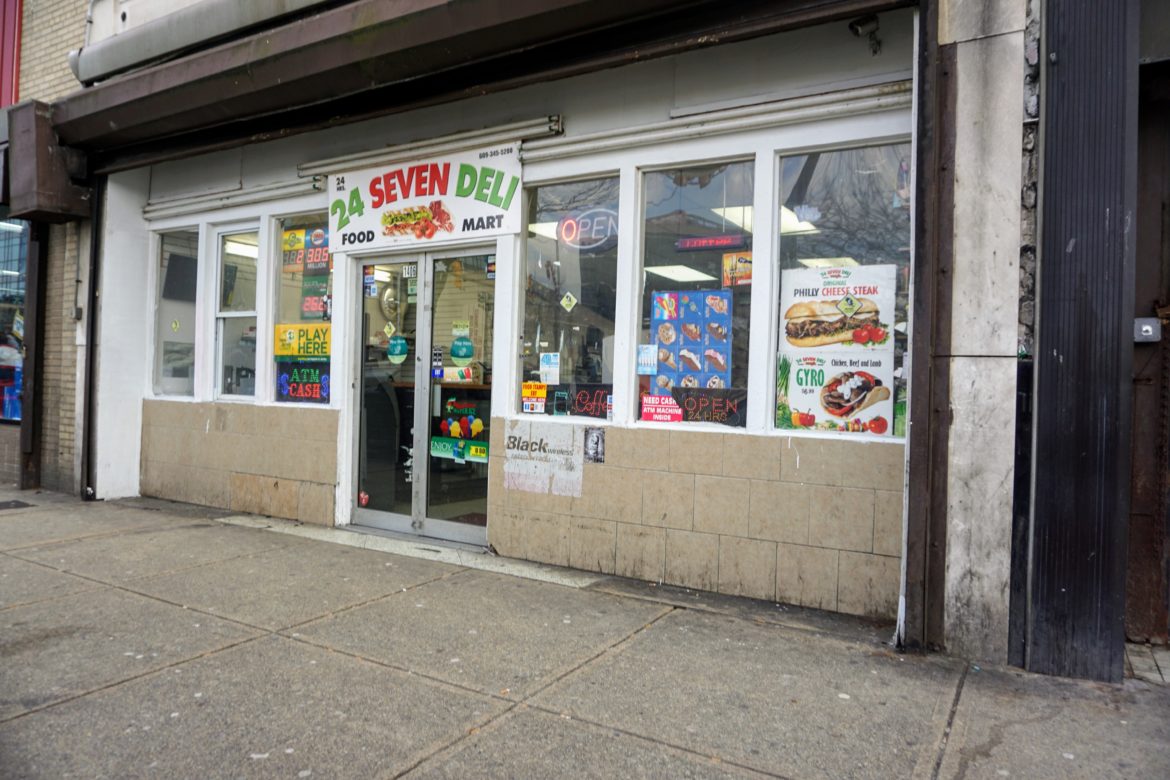How much confidence do Atlantic City City Council members have in Mayor Frank Gilliam?
Last week, a group of councilmen proposed restricting the mayor’s authority over city mercantile licenses, hinting they thought Gilliam acted improperly when he intervened to restore the mercantile license of a shop on Atlantic Avenue that had been closed down after the clerk was arrested on drug distribution charges.
On September 20, after a month-long investigation, the Atlantic City Police Department raided the 24 Seven Food Mart at 1406 Atlantic Avenue between Tennessee and New York. They recovered 26 grams of cocaine, 87 bags of heroin and $2,006 in proceeds, they said, from the alleged drug sales. One of the two men arrested was identified by police as a clerk at the store.
Sometime after the raid, at the request of the police, the city’s Office of Licensing & Inspection revoked the mercantile license of the 24 Seven Food Mart, marking a minor triumph in the ceaseless War on Drugs.
There are any number of similar markets around town that appear, residents say, to be home to mysterious, bustling trade that is probably not, to use the old-fashioned term, strictly legal. But Sergeant Kevin Fair said this was the first such market to have been raided and shut down in the three years that he’s been public information officer for the Atlantic City Police Department.
After the merc was pulled, an appeals hearing was held in the office of Dale Finch, who is the Director of Licensing & Inspections. At the meeting was the owner of the market, the owner’s lawyer and officers from the ACPD. Finch, in an interview, said after this appeals hearing he upheld his own decision to revoke the mercantile license and kept the market closed, but at some point after that, Mayor Gilliam, who is facing a variety of legal entanglements of his own, indicated in Finch’s word, that the mercantile license should be given back, so it was reinstated, Finch said, “based upon that request.”
Asked if it was unusual, in his experience, for the mayor to intervene in such matters, Finch said it hadn’t happened before. “The mayor’s the ultimate administrator of the city’s government,” he said.
At the November 7 City Council meeting, after another city resident (Victor Jenkins) described the conditions on Atlantic Avenue (“emergency” conditions), Councilman George Tibbitt brought up the subject of the raid at 1406 Atlantic, saying the shop had been closed after the clerk was arrested for selling drugs from behind the cash register.
Then he turned his attention to the Licensing & Inspections Director.
“Why are they back in business, Mr. Finch?” he asked. “How do we expect our police to continue doing their job, when they go raid the place, catch ownership involved in the distribution of drugs, and we give mercantiles back? I don’t get that.”
Mayor Gilliam interjected that the persons arrested on September 20 did not include the store owners, and he defended his decision to reinstate the merc. “We made that executive decision because in order for you to actually condemn someone, not to open up an establishment, the courts have to identify that entity as being in violation,” Gilliam said.
He said the city could not close a store because people congregated (Gilliam’s word) outside, then went inside to sell drugs, and that it would have been unfair to punish the establishment under those circumstances (which were not, it should be pointed out, the circumstances described by police).
When Marty Small, the Council President, pressed Gilliam for details on the investigation, Gilliam said he was not at liberty to say anything more but that the store owner was not selling the narcotics. “The key is that it’s not a closed case,” the mayor said in that meeting.
In an interview, the owner of the 24 Seven market, Tariq Mehmood, said the clerk (now the ex-clerk) was not a family member, though Tibbitt, in an interview, said the man was in fact the owner’s son. For what it’s worth a cursory search of the news archives turns up a few stories from 2011 and 2013 (when Tariq was likewise in the news cycle) that suggest Councilman Tibbitt is probably right.
Mehmood said the drugs sold in his store were coming from outside, the moves against the mayor were the result of “jealousy” and he had video evidence demonstrating his innocence.
Dale Finch, in an interview, said the issue of whether the September 20 arrests involved family members of the store owner did not come up in his appeals hearing over the license.
At the December 12 City Council meeting, Councilman Tibbitt proposed to Council President Marty Small that the council meet with the city’s legal department to discuss putting “something on the books” that would require any merchant who lost a license because of “something dealing with the police” to get the approval of city council before the license could be restored. Tibbitt cited the hundreds of hours (his words) of work, including undercover work, needed to infiltrate and finally close the market. “And the fact that we actually did it, and closed them down, and gave a mercantile license back, is alarming,” Tibbitt said.
Councilmen Kaleem Shabazz, Aaron Randolph and Marty Small immediately supported the idea.
The mayor, whose home had been raided by the FBI on December 3, wasn’t at the meeting at all.
